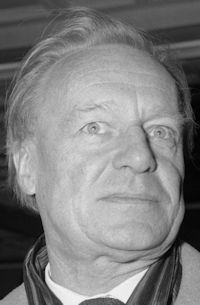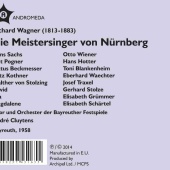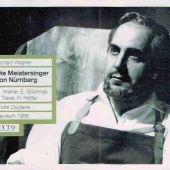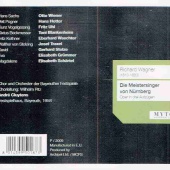I wrote about Wieland Wagner’s production of Die Meistersinger in these pages last year. Much of it dismayed me at the time, but for a year the beauty of this staging has haunted me, and I returned to Bayreuth prepared for a complete surrender. Now, only the closing pages of the second act (treated as a stylized scrum) and some of the mass-movements in the final stadium strike me as being ‘against’ the music ; and the rest, as the truest and most beautfiul production of the opera that one could hope to see. The settings for the first two acts are a quintessentialized refinement of the traditional staging. Everything in Act 2 is in its right place. The acting is subtle and detailed ; the characters are vivid. It is quite different from the impersonal Lohengrin or Tannhauser. Musically, it was more refined than last year. The new Sachs, Otto Wiener (from Düsseldorf), portrays a human, ‘historical’ figure. At first, a shade of coarseness in his tone was disturbing. Later, he still lacked nobility, though not poetry. Griimmer was a lovely Eva, and Traxel a more than acceptable Walther. Hotter, a beardless Pogner (!), produced too much loose tone, though his interpretation was moving. Toni Blankenheim, in an age of good Beckmessers, was an exceptional one, for—without thereby losing any of the humour of the situations—he presented a town-clerk without a trace of humour in him: other Beckmessers generally allow some of the comedy to spill into the presentation. Blankenheim sang his Prize Song as beautifully as possible, and was quite unprepared for the reception it got. Gerhard Stolze made an excellent David ; and we might mention a pleasant little piece of business invented by Wieland Wagner: when Walther was asked who his master had been, this David hopped forward with a proud little gesture as if to say : Me, me! Cluytens conducted: and since this was his third year at Bayreuth, he now showed more understanding of Wagnerian style, although he still did not draw a deep well balanced sound from the orchestra, and did not hold tempi convincingly.
October 1958







